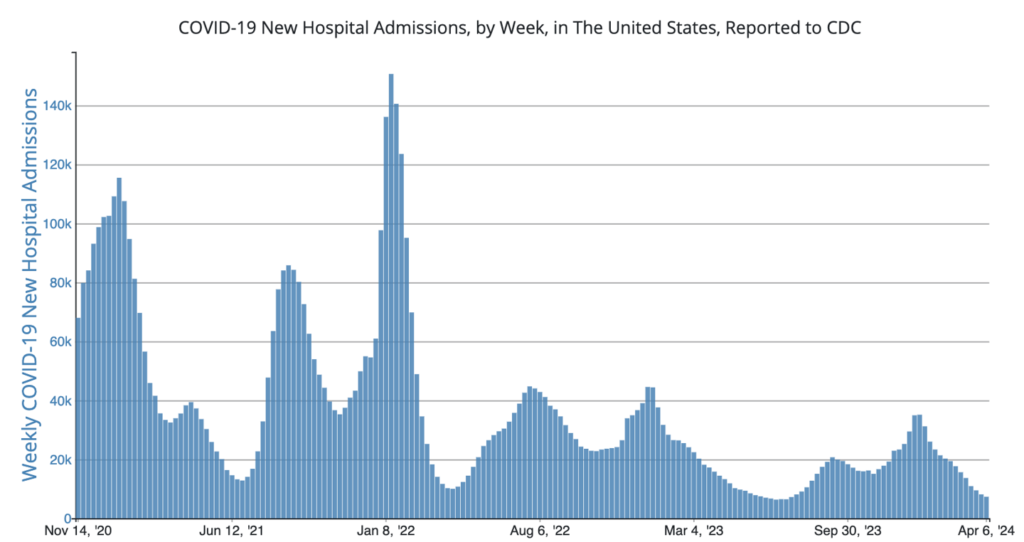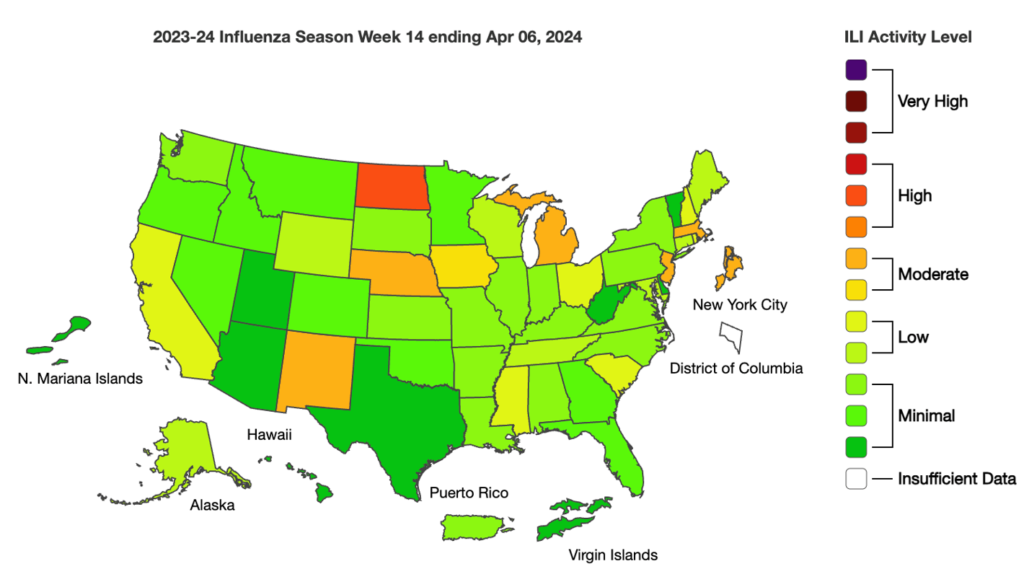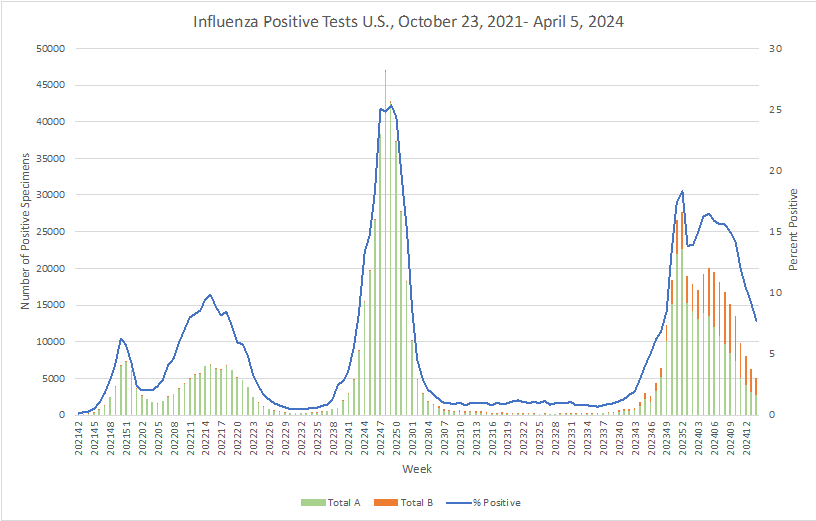The ranking of the 2023–24 winter season as the warmest on record for the contiguous U.S. was likely welcomed by those who prefer warmer weather, but the resulting early emergence of certain seasonal pests, such as mosquitoes and ticks, is quite a bit less welcome. By February, Minnesota and Virginia had already seen its first ticks; the multiple warm periods in Michigan led to the early emergence of mosquitoes; and states continued to be added to the early emergence list for both as unseasonably high temperatures continue at least intermittently.
While other insects and arachnids are also emerging early, ticks and mosquitoes are of high concern due to their ability to spread disease. Mosquitoes can transmit dengue, malaria, chikungunya, and zika, while deer ticks are most noted in the US for the spread of Lyme disease. But one of the gravest of concern of these currently is the mosquito-borne dengue fever for which there have been more than 3.5 million cases in Latin America through March of 2024 and states of emergency declared in Peru and Puerto Rico.
This is also of concern because increased temperatures, rainfall, and humidity there and elsewhere are enabling the mosquitoes that carry dengue viruses to extend their range, both seasonally and geographically. Dengue is being reported in areas it never had before – including a few hundred cases of local transmission in the US. It is serious enough that in 2023 a WHO expert called the increased outbreaks a “canary in the coal mine of the climate crisis.” While there are dengue vaccines, including a new one that is delivered in a single shot and provides strong protection, there is not expected to be enough to curb this year’s outbreak – or potentially the next one, as dengue typically surges in three- or four-year cycles.
The Pan American Health Organization (PAHO) of the WHO is calling for prompt action to prevent and control the dengue transmission which is “a task for all sectors of society,” requiring community engagement for success.
Protection and control, for the US as well as Latin America, should include:
- Intensified efforts to eliminate mosquito breeding sites.
- Protection against mosquito bites (such as repellents, long pants/sleeves, etc.).
- Increased preparedness in health services for early diagnosis and timely clinical management.
- Continuous work to educate the population about dengue symptoms and when to seek prompt medical attention.
For more information, see the TAG Mosquito-borne Disease Fact Sheet and CDC Mosquito-borne and Tick-borne disease webpages.
COVID Risk Matrix:

Influenza:


- New avian influenza cases have been detected throughout the US, including in dairy cattle herds located in South Dakota, North Carolina, and Michigan. Additionally, Minnesota and New Mexico both reported their first outbreaks in commercial poultry operations for 2024.
- The WHO issued a global hepatitis report on April 9, 2024. The latest data show that viral hepatitis is a major public health challenge of this decade, and the world is still far from achieving its elimination by 2030. Combined, hepatitis B and C cause 3500 deaths per day. Two thirds of all hepatitis cases are in Bangladesh, China, Ethiopia, India, Indonesia, Nigeria, Pakistan, the Philippines, Russia, and Vietnam, according to the report. “Universal access to prevention, diagnosis, and treatment in these 10 countries by 2025, alongside intensified efforts in the African region, is essential to get the global response back on track,” the WHO said in a statement.
- CDC estimates that 83% of measles cases have involved people who were either unvaccinated or have an unknown vaccination status, while another 12% of cases involved people who only received one of the two vaccine shots needed for measles.
- The value of vaccination for measles is demonstrated in Chicago where a significant decline has been observed in measles cases after a vaccination campaign targeting individuals lacking protection was implemented.
- In Nigeria, about 1,186 suspected cases, 60 confirmed cases, and 38 deaths linked to meningitis have been reported. The WHO has stepped in to offer help in containing the disease and providing vaccines.
- From January 1 to March 30, Philippine authorities have recorded 1,112 cases of the whooping cough, including 54 deaths in children younger than 5 years old. At least six out of ten were either unvaccinated or did not know their vaccination history.
- The FDA has accepted an application for review of the company’s 5-in-1 meningococcal vaccine. The vaccine will target 5 groups of Neisseria meningitidis bacteria (serogroups A, B, C, W and Y) which are known to cause most cases of invasive meningitis disease (IMD) globally.





